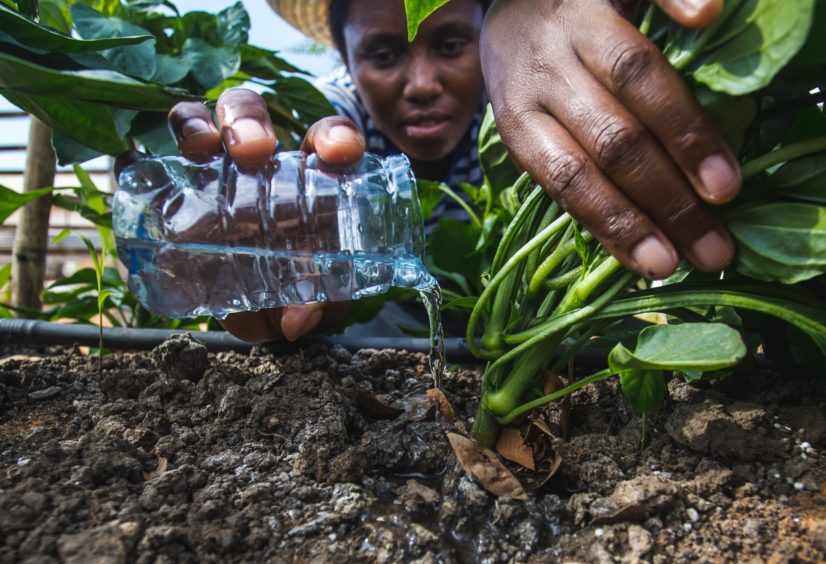
Companies working in Africa must do more to bolster local industry and participation, or risk continued challenges around security and legitimacy.
“There is a sense in which management of companies have felt they don’t need to prioritise local communities until after the ‘big’ stuff like production-sharing agreements [PSAs], tax rates and cost recoverable quotas have been agreed,” Invest in Africa’s programme director Will Pollen told Energy Voice.
Ignoring local needs is a mistake. The risk of overlooking community engagement sows “the seeds of your own future failure”, Pollen continued.
When a company makes a big discovery, there is a tendency to focus on tangible issues, such as revenue sharing, taxes and development plans. This focus misses some of the more nebulous issues, but important, issues around neighbours.
“Community engagement is seen as an after-thought and as a result it ends up with fairly tokenistic items that can be thrown under the hat of local content.”
There is a need for oil companies to improve their soft skills, in order to relate better to local communities.
Palma
The Islamist terrorist attack on Palma, in Mozambique, in March is the most high profile recent example of such a failure of communication.
“From my experience, the industry is not good at thinking strategically about how a transformative infrastructure project like Total’s in Mozambique can drive the country, or the region, forward. The situation in Mozambique today is a good example of that playing out,” Pollen said. “Culturally and historically the industry is not good at working with local communities.”
Pollen was not optimistic about how the Palma attack may drive change in how the industry operates. Onlookers will see the attack as unique, he said. “It will not drive new commitments.”
To get the project back on track needs these communities to be supportive of the LNG projects. “They can’t have tanks on the streets for the duration of the project.”
Invest in Africa works to help local SMEs become more competitive. The organisation covers a range, from helping understand the energy industry through to helping participate in tenders and accessing finance.
Jobs
Oil and gas projects are not good at creating broad-based employment. Companies tend to shy away from revealing too much about their plans, Pollen said.
“History shows oil and gas is really bad at making new jobs – it never has and it never will. When the local market thinks everyone will get rich, it is a toxic situation,” he continued. There needs to be more clarity about “what the opportunities are, what the standards are”.
Projects on their own will not create jobs but associated infrastructure can be a big driver of investment in areas such as roads and airports. These will support economic growth.
Governments must be realistic about what oil and gas projects can, and can’t, do. There is a lack of trust on both side. “They should acknowledge that they have the power, but they need to learn about what is realistic and what is not, by continual and meaningful consultation with industry.”
IOCs are more aware of the challenges. They tend to have capacity to engage with local needs, but this does not trickle down.
“That drive gets lost in the leap to the tier one service companies. They’re not feeling that same heat and they will prefer to use the contractors they have used before,” Pollen continued. “That’s where we and the IOCs need to push.”
Transition
The notion of local content is explicit in oil and gas projects, but this has not yet come through in renewable energy plans. This must change. “There should be,” Pollen said.
“There are new opportunities that will emerge as a result of a shift to renewables. African companies may not be involved in drilling oil wells, but that may not be the case for manufacturing solar panels or site surveying.”
There is clearly enthusiasm for renewable energy in a number of states. The Inclusive Green Economy Network – East Africa (IGEN-EA) launched in late May.
Backers established IGEN-EA with the aim of boosting other parts of the economy – in a refutation of the oil industry in western Uganda.
The network aims to secure green investments in a number of areas, including agriculture, tourism, fishing and renewable energy.
“Communities in western Uganda had relied on oil and gas hopes. People told them they would get jobs and incomes would increase,” AFIEGO communications officer Diana Nabiruma told Energy Voice.
Community members supported developments because of promised jobs, she continued, but with little insight into the environmental issues.
Disconnect
“One of our findings was that there was a disconnect between civil societies and private companies. It’s the people who stand to lose out, but they’re not part of the discussion around oil and gas,” Nabiruma asid.
Focusing on other parts of the economy, including clean energy, “creates more investment and more jobs, so the communities can benefit”. Areas of interest include mini grids and clean cooking technology, in addition to working out how best to use electricity when it is available.
IGEN-EA will work with development financiers, holding talks recently with the European Union, and the Ugandan government to secure support. “Funds need to go to, for instance, small-scale farmers and clean energy innovators. The aim is to increase the money in people’s pockets.”
Nabiruma said that communities are likely to be more in favour of conservation projects when incomes rise.
For IGEN-EA, it seems there is no place for fossil fuels. “Investments are incompatible with inclusive growth and environmental conservation. They endanger key green activities,” she said.
Recommended for you


